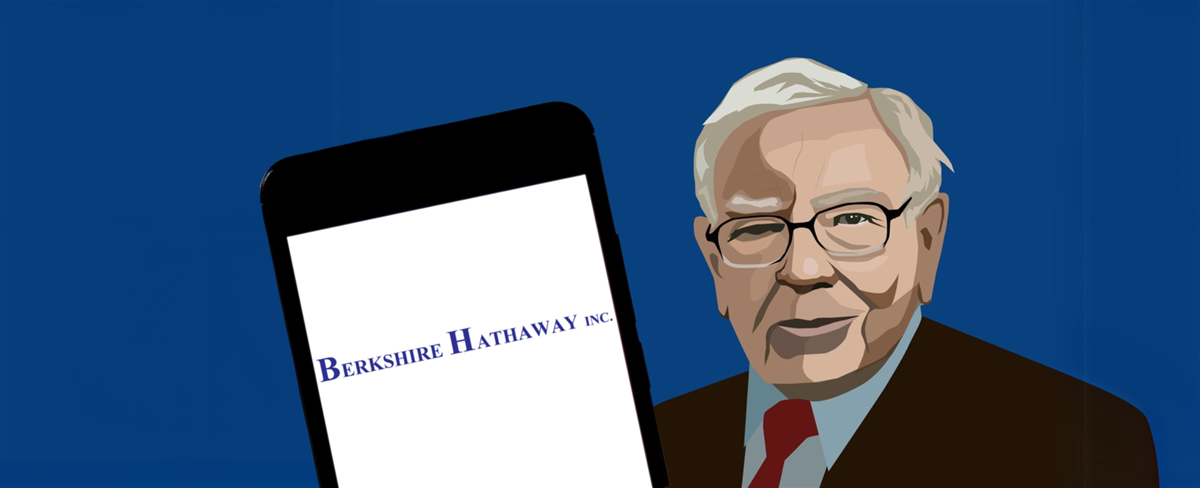
Investors can often benefit from following the recent movements and decisions made by the biggest names in the market, especially if they can work through reverse engineering some of the reasoning behind these decisions. With this in mind, today’s analysis won’t be about which bank or hedge fund bought which stock but rather about a known investor choosing to sit out this bull market.
([content-module:CompanyOverview, NYSE:BRK)Warren Buffett is known as the Oracle of Omaha and one of the most respected value investors in the industry. Among the many indicators that have been made from his stock market activities, this one might be one of the most direct ones, and it concerns how much cash is held in his holding company, Berkshire Hathaway Inc. BRK.
Typically, Berkshire’s cash balances fluctuate with the business cycle. This means that the company will hold a larger percentage of cash in its balance sheet when there are no attractive buying opportunities in the market and very little cash when there are a seemingly abundant number of potential deals in the market, as the company would be allocating that cash into these purchases.
Reason 1: Buffett Expects a Flat Market
Studying Buffett’s past behavior can help investors understand the nature of his decisions today, which is where a 1999 interview with CNN Business comes in handy. In this interview, Buffett said that he was holding off on investing in the market due to obscene valuations.
While many critiqued Buffett for missing out on the dot-com bubble, Berkshire shareholders thanked him a few years later when he deployed all of that liquid cash into incredible deals that were generated in the ensuing selloff. That being said, the CNN interview doesn’t sound much different from where markets find themselves today.
According to the Buffett indicator, which is computed by taking the value of the stock market divided by the United States GDP, the SPDR S&P 500 ETF Trust SPY is at its most expensive level in history. Still, Buffett’s reasoning doesn’t end there.
He also mentioned that because corporate earnings made up to 6% of this GDP, earnings per share couldn’t grow fast enough to outpace basic inflation levels and not cause a further bubble in the market. For this reason, he went to cash and remained in cash until 2004.
Today, Berkshire holds just over $325 billion in cash, its highest level since then. However, the overall cash value is not the most important metric here; what matters is the percentage of net assets this dollar value represents. As of January 2025, this $325 billion represents up to 25% of Berkshire’s assets, which is unusual compared to the average 14% to 16% range.
Considering that corporate earnings today make up over 12% of the country’s GDP, Buffett has all the more reason to expect a flat market as he did back then, justifying his record-high cash position.
Reason 2: There Is Nothing to Buy But Bonds
Apart from cash holdings, Buffett now holds more capital in bonds than the Federal Reserve itself. Buffett is known to do this when he thinks there will be a prolonged period of time without major stock-buying activity.
He’s not alone in this view, as the latest 2025 macro outlook report from Goldman Sachs suggests that there is some downside risk in the S&P, and they’ve also recommended buying bonds and oil as hedges. This is where the iShares 20+ Year Treasury Bond ETF TLT and energy stocks would come into play for investors.
And also why Buffett now holds so much capital in both bonds and a particular name in oil. Over the past few quarters, Buffett accumulated a stake of up to 29% in Occidental Petroleum Co. OXY, so more and more of the market is figuring out where the best opportunities are for 2025.
Even with Buffett’s cash balance, stock market valuations, and more factors acting as a warning, investors shouldn’t be entirely out of the market as he is. They should remember that Buffett has a very large pile of capital to work with, so restrictions and mandates abound.
However, other stocks could turn 2025 into an outperforming year. These are ones that Buffett might not be able to buy due to size, but investors can take advantage of them today.
The article "Why Warren Buffett Is Keeping 25% of Berkshire's Assets in Cash" first appeared on MarketBeat.
© 2025 Benzinga.com. Benzinga does not provide investment advice. All rights reserved.
Trade confidently with insights and alerts from analyst ratings, free reports and breaking news that affects the stocks you care about.